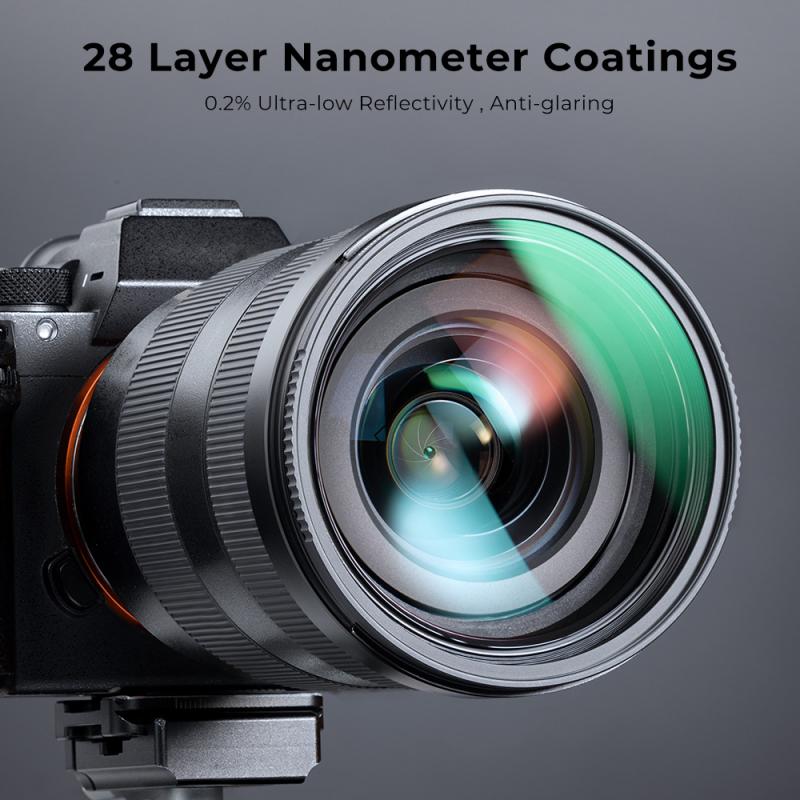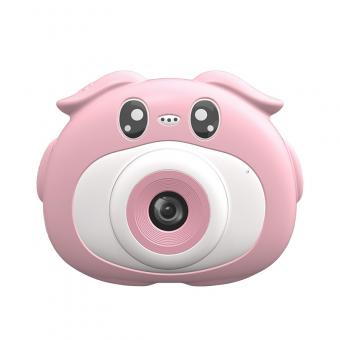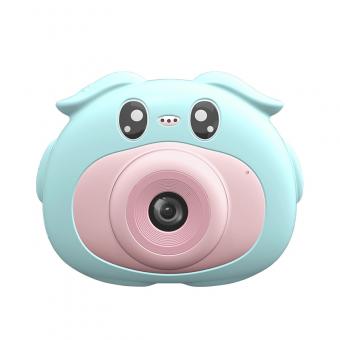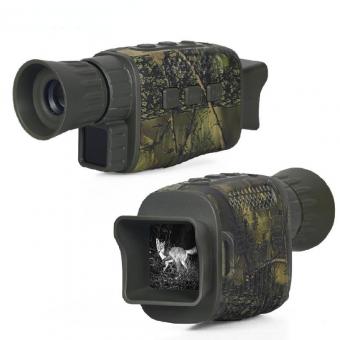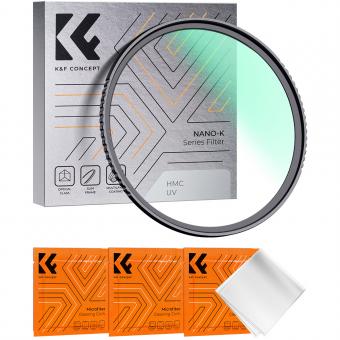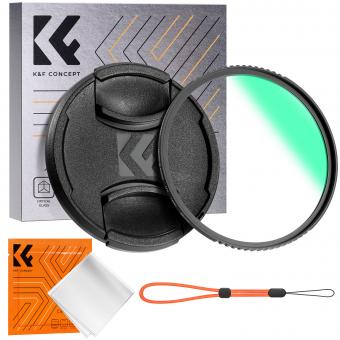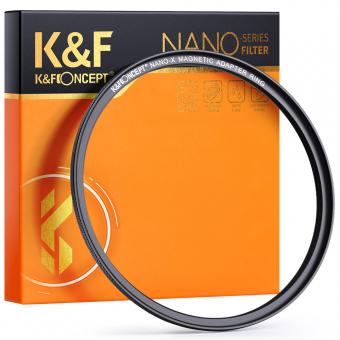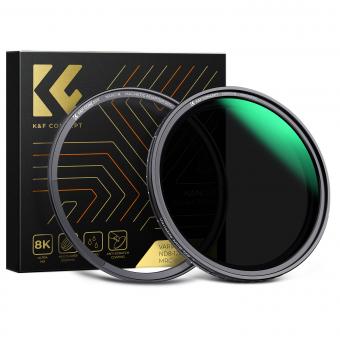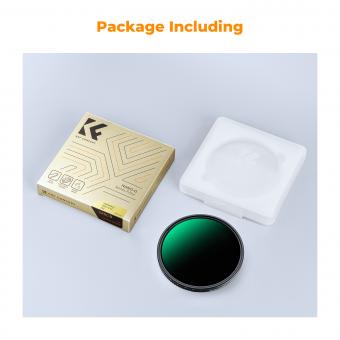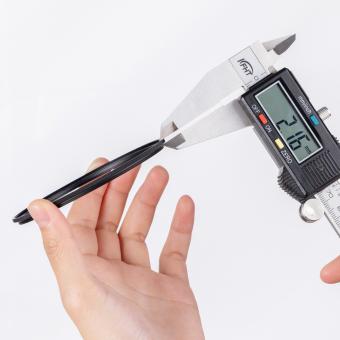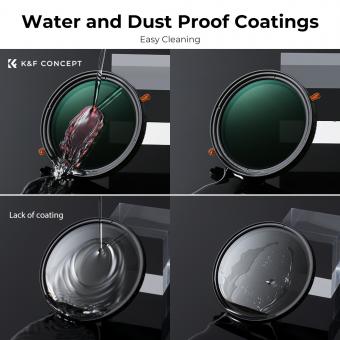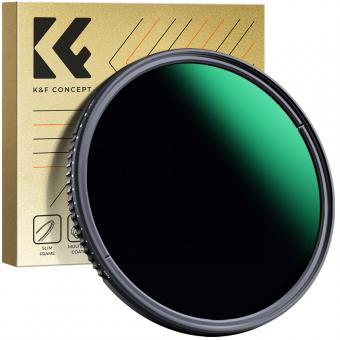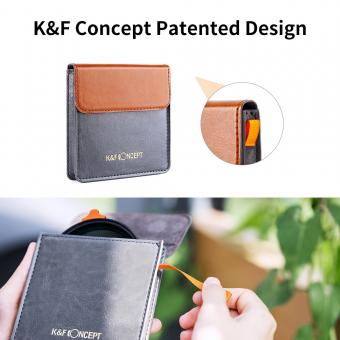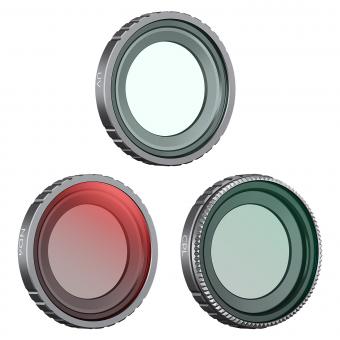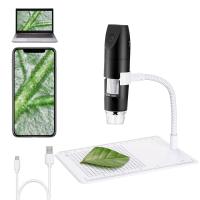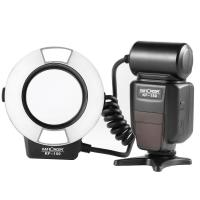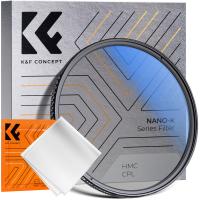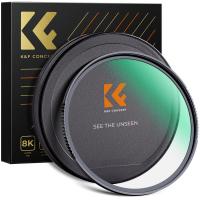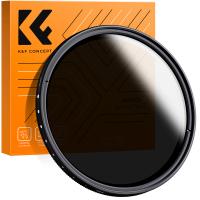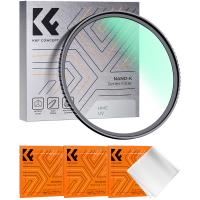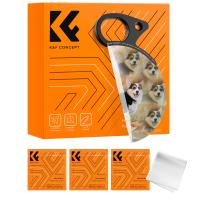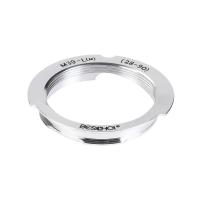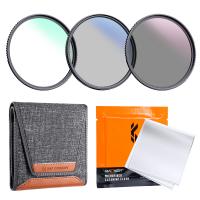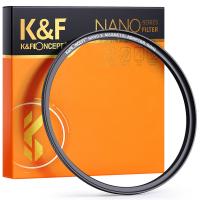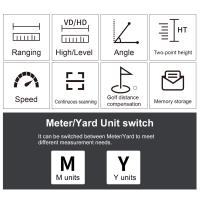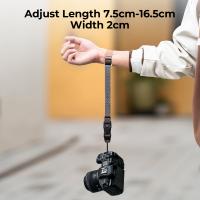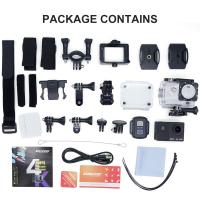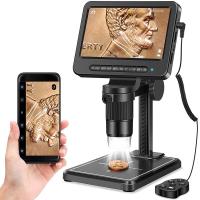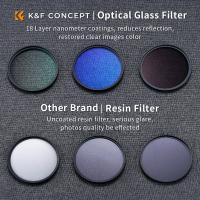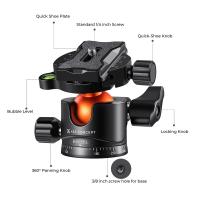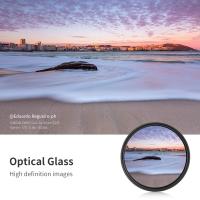Are Uv Filters Any Good ?
UV filters can be beneficial in certain situations. They are primarily used to block ultraviolet light from entering the camera lens, which can cause haze and reduce image clarity. UV filters can help improve image quality by reducing the effects of UV radiation, especially in high-altitude or coastal areas where UV light is more intense. Additionally, UV filters can provide some level of protection for the front element of the lens, shielding it from dust, moisture, and scratches. However, it is important to note that the use of UV filters can also introduce potential drawbacks, such as increased lens flare or reduced image sharpness. Ultimately, the decision to use a UV filter depends on individual preferences and shooting conditions.
1、 UV filters: Purpose and benefits in photography
UV filters are indeed beneficial in photography, but their usefulness can vary depending on the specific circumstances. UV filters are designed to block ultraviolet light, which can cause hazy and blurry images, especially in high-altitude or coastal areas. By using a UV filter, photographers can reduce the impact of UV light and achieve clearer and sharper images.
One of the main purposes of UV filters is to protect the front element of the lens from scratches, dust, and moisture. This can be particularly useful in outdoor photography where the lens is exposed to various elements. Additionally, UV filters can act as a barrier against accidental damage, such as drops or impacts, potentially saving the lens from costly repairs or replacements.
However, it is important to note that UV filters can also introduce certain drawbacks. Some photographers argue that adding an extra layer of glass can potentially degrade image quality, especially if a low-quality filter is used. This can result in reduced sharpness, increased lens flare, or unwanted reflections. Therefore, it is crucial to invest in high-quality UV filters from reputable brands to minimize any negative impact on image quality.
In recent years, the debate surrounding the necessity of UV filters has intensified. With advancements in lens coatings and digital post-processing techniques, some photographers argue that the benefits of UV filters are no longer as significant. However, others still advocate for their use, especially in situations where lens protection is crucial.
Ultimately, the decision to use a UV filter depends on personal preference and shooting conditions. If you frequently shoot in environments where UV light is prominent or if you prioritize lens protection, then a high-quality UV filter can be a valuable addition to your photography gear.
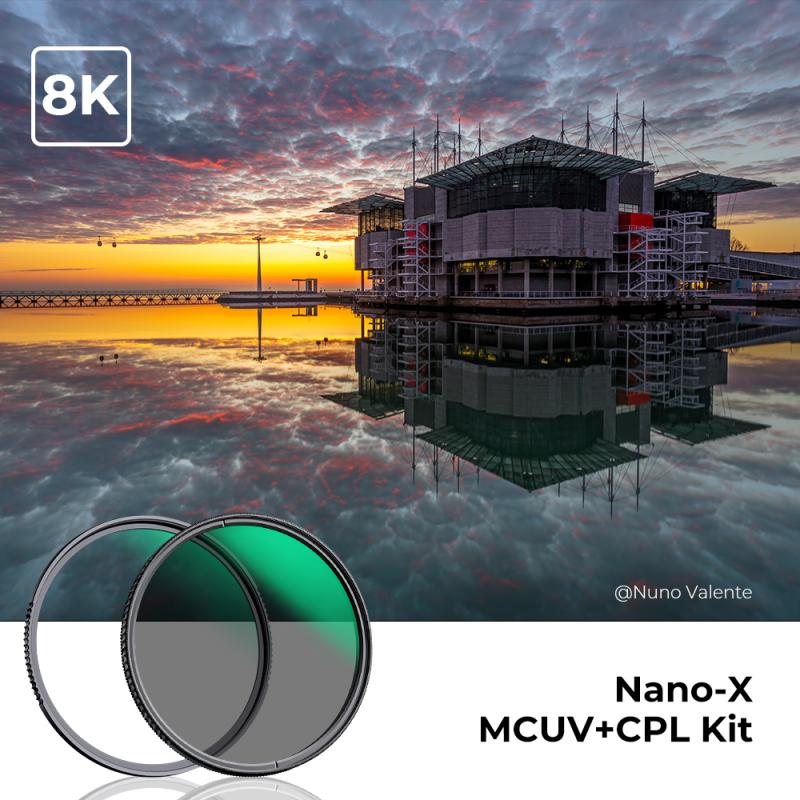
2、 Effectiveness of UV filters in reducing haze and glare
The effectiveness of UV filters in reducing haze and glare has been a topic of debate among photographers and experts in the field. UV filters are designed to block ultraviolet light, which can cause a bluish cast in photographs and contribute to haze and glare.
Many photographers argue that UV filters are essential for protecting the front element of their lenses from scratches, dust, and other potential damage. However, when it comes to their effectiveness in reducing haze and glare, opinions vary.
Some photographers claim that UV filters have a noticeable impact on reducing haze and glare, especially when shooting in bright sunlight or at high altitudes. They believe that the filters help to improve image clarity and contrast, resulting in crisper and more vibrant photographs.
On the other hand, some experts argue that the impact of UV filters on reducing haze and glare is minimal, especially with modern digital cameras that have built-in UV filters. They suggest that investing in high-quality lenses and using lens hoods can be more effective in reducing unwanted light and improving image quality.
It is important to note that the latest point of view on this matter is that UV filters may not be necessary for all situations. Many photographers now prefer to use UV filters primarily for lens protection rather than for their supposed impact on reducing haze and glare.
Ultimately, the decision to use UV filters should be based on personal preference and the specific shooting conditions. It is recommended to experiment with and without UV filters to determine their effectiveness in reducing haze and glare in your own photography.
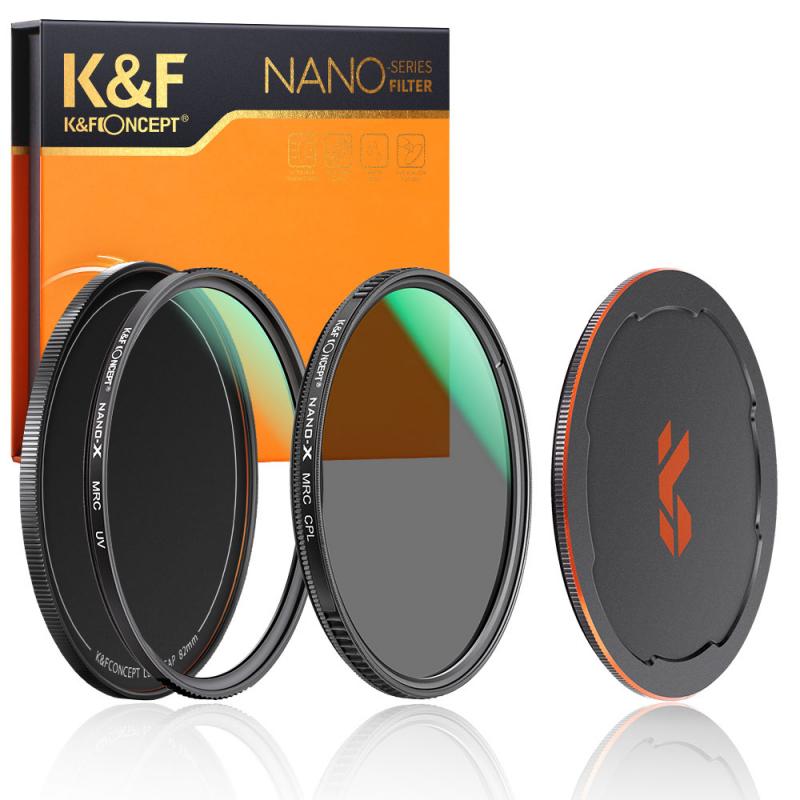
3、 Controversies surrounding the use of UV filters in digital photography
Controversies surrounding the use of UV filters in digital photography have been a topic of debate among photographers for quite some time. UV filters are designed to block ultraviolet light from entering the camera lens, which can potentially cause haze and reduce image clarity. However, their effectiveness and necessity have been questioned by some photographers.
On one hand, proponents argue that UV filters provide an extra layer of protection for the lens, shielding it from dust, moisture, and scratches. They believe that investing in a high-quality UV filter can help preserve the lens's lifespan and maintain its optical performance. Additionally, UV filters can be easily replaced if they get damaged, whereas repairing or replacing a lens can be much more expensive.
On the other hand, critics argue that adding an extra piece of glass in front of the lens can potentially degrade image quality. They claim that even the best UV filters can introduce lens flare, reduce contrast, and cause unwanted reflections. Some photographers argue that modern lens coatings already provide sufficient protection against UV light, making the use of UV filters unnecessary.
It is important to note that the latest point of view leans towards the idea that UV filters are not essential for digital photography. With advancements in lens technology and lens coatings, the need for UV filters has diminished. However, there are still situations where UV filters can be beneficial, such as when shooting in harsh environments or when photographing subjects that may pose a risk to the lens.
Ultimately, the decision to use a UV filter comes down to personal preference and shooting conditions. Photographers should carefully consider the potential benefits and drawbacks before deciding whether to invest in a UV filter for their camera lens.
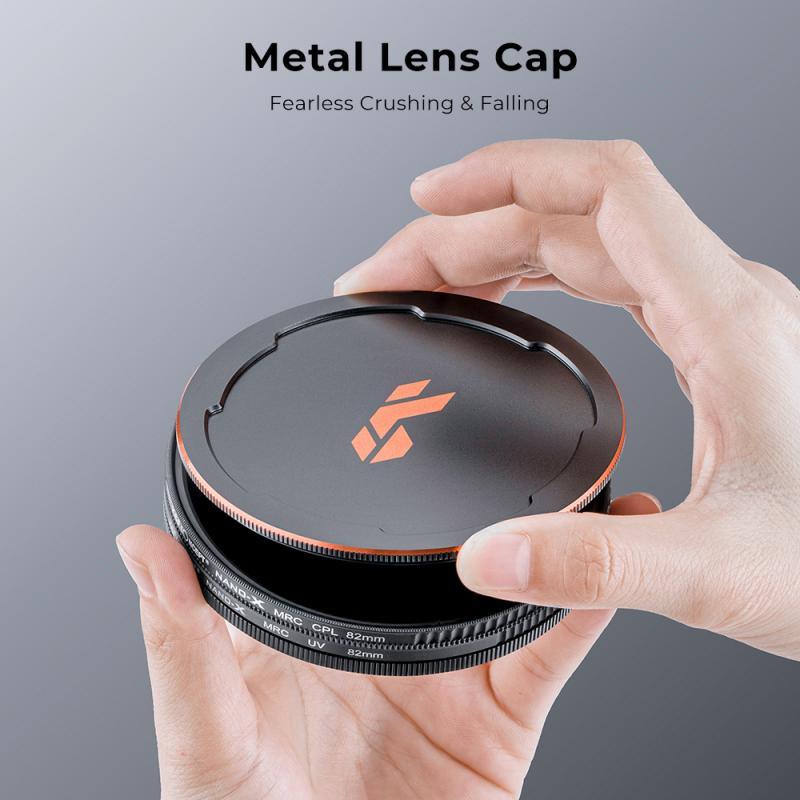
4、 UV filters and their impact on image quality and sharpness
UV filters are a topic of debate among photographers and enthusiasts, with varying opinions on their effectiveness and impact on image quality and sharpness. UV filters are primarily designed to block ultraviolet light, which can cause haze and reduce image clarity, particularly in high-altitude or coastal environments.
Proponents of UV filters argue that they provide an extra layer of protection for the lens, shielding it from dust, moisture, and potential scratches. They believe that the benefits of using a UV filter outweigh any potential drawbacks. Additionally, some photographers claim that UV filters can enhance image quality by reducing the effects of atmospheric haze and increasing contrast.
However, there are also those who argue that UV filters can negatively impact image quality and sharpness. They believe that adding an additional piece of glass in front of the lens can introduce lens flare, reduce contrast, and potentially degrade image sharpness. Critics argue that modern lens coatings are already effective at reducing UV light, making UV filters unnecessary in most situations.
It is important to note that the latest point of view leans towards the idea that UV filters are not essential for image quality. With advancements in lens technology and coatings, the need for UV filters has diminished. Many professional photographers and experts recommend investing in high-quality lenses and using lens hoods for protection instead.
Ultimately, the decision to use a UV filter comes down to personal preference and the specific shooting conditions. If you frequently shoot in harsh environments or are concerned about lens protection, a UV filter may provide some peace of mind. However, for most photographers, it is advisable to prioritize lens quality and proper lens care over the use of UV filters.
